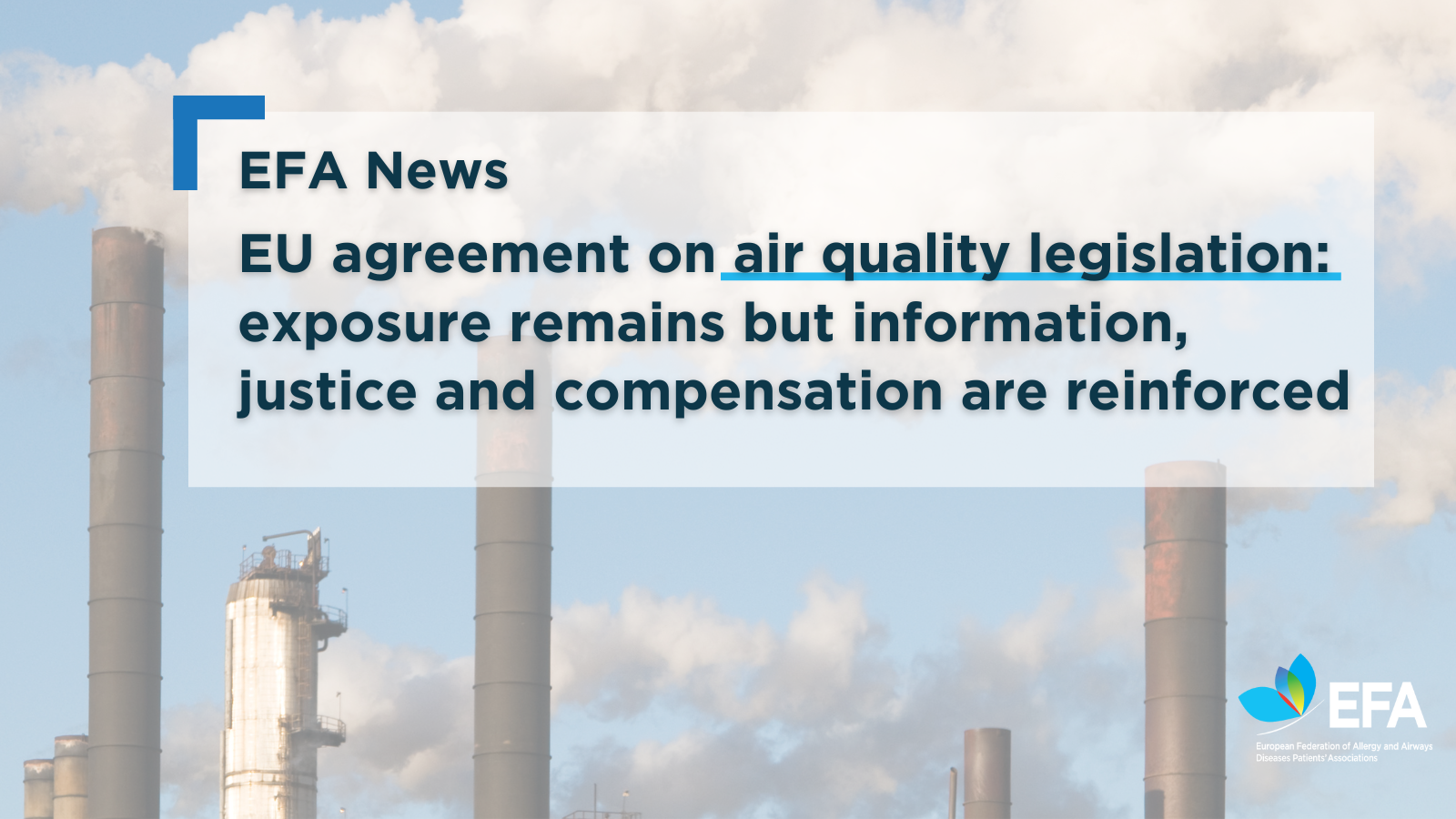The European Parliament and the Council have reached a preliminary agreement for a clean air law that sets new standards to protect people’s health. Despite the future law falling short in aligning with the latest scientific science, the directive, if voted before the European elections, foresees better public information, access to justice and compensation for health damages. Read on!
Last month the European Parliament and the Council reached a provisional agreement on the revision of the EU Ambient Air Quality Directive - one of the key policy pillars governing the quality of air we breathe. The agreement is a culmination of a three-month intense negotiation among the co-legislators, marked by differing positions on certain legislative aspects that were, at times, hard to overcome.
All along the revision process, EFA has worked both independently and in collaboration with other EU-wide health organisations, such as the Health and Environment Alliance (HEAL) and the European Respiratory Society (ERS), advocating for an ambitious revision of the directives that reflects latest scientific evidence and ensures healthy air in Europe.
Although not all calls have been taken on board adequately, EFA welcomes the agreement as a solid step towards cleaner air for all people living in Europe.
In the agreement on the revised Ambient Air Quality Directive, EU policymakers recognised the vital need to reduce air pollution in line with scientific recommendations.
However, the institutions have stopped short of fully aligning the law with the World Health Organisation’s (WHO) recommendations and have also included a mechanism that could allow Member States to delay complying with the new standards until 2040.
From the perspective of patients living with allergy, asthma and COPD, we have focused, in particular, on the following aspects:
EU new legislation will fall behind WHO recommendations
In the agreement on the revised Ambient Air Quality Directive, EU policymakers recognised the vital need to reduce air pollution in line with scientific recommendations.
However, there is no full alignment with the WHO recommendations, nor a clear timeline for it. The institutions have stopped short of fully aligning the law with the World Health Organisation’s (WHO) recommendations and have also included a mechanism that could allow Member States to delay complying with the new standards until 2040.
On the positive side, there are provisions establishing a regular review mechanism, starting from 2030 and every five years thereafter, for legislative updates based on the ’latest scientific evidence’. This avoids having to reconduct a full legislative process to modify some thresholds or pollutants in the directives.
Improved public information on air quality
A very positive step forward is the agreement to establish EU requirements for improved public information on air quality. Information will take the form of national Air Quality Indices disseminating real-time information. The directive will require that indices including advice for vulnerable groups, a long term ask of EFA, as well as information thresholds for all pollutants.
Access to justice and compensation for health damage from air pollution
The agreement also maintains the European Commission proposal to specifically reinforce access to justice for exposure to air pollution. This will allow citizens and legal entities such as patient groups to start legal procedures in the event of health damage due to air pollution. Moreover, people in the EU will now have the right to claim and obtain compensation for health damages as a cause of a violation of national air quality rules.
Clean air future – we must act now!
EFA calls for the conclusion of the revision process, which still requires the approval of both the EP Plenary and the Council of Ministers. We have joined forces with seven other health organisations in a letter addressed to EU environment ministers and MEPs calling for the adoption of the provisional agreement as soon as possible, before the June European elections.
Meanwhile, EFA is looking forward to starting working on another process launched on a key file related to air quality, which is the evaluation of the National Emissions Ceiling Directive (NEC).
